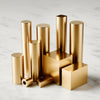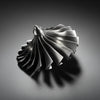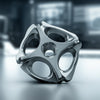Precision CNC Turning for Stainless Steel 304 Parts
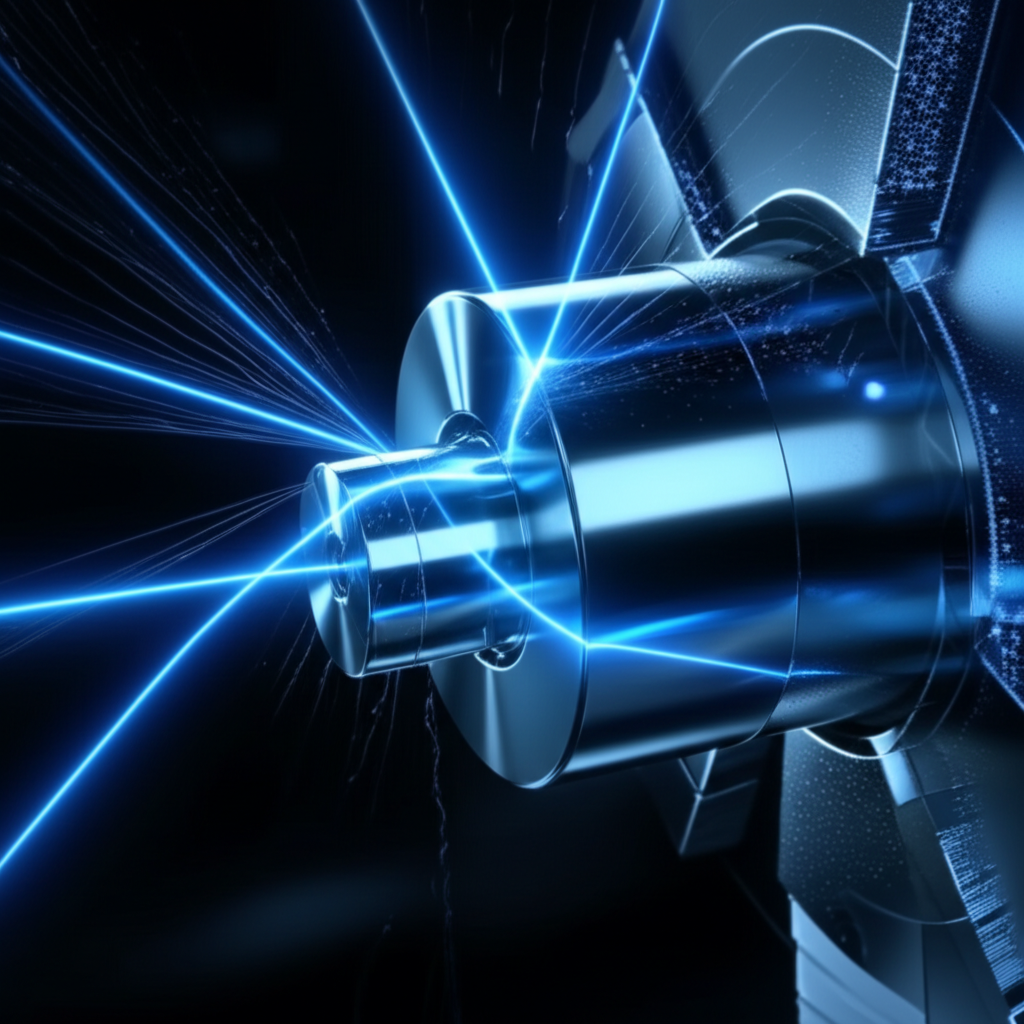
TL;DR
CNC turning stainless steel 304 parts is a preferred manufacturing solution due to the material's excellent corrosion resistance, high strength, and superior formability. This austenitic steel alloy is cost-effective and highly workable, making it ideal for creating intricate, high-precision components across numerous industries. We specialize in leveraging advanced CNC technology to transform 304 stainless steel into custom parts that meet the most demanding specifications.
The Advantages of 304 Stainless Steel for CNC Machined Parts
Often referred to as the workhorse of stainless steels, Grade 304 is the most widely used variant due to its balanced combination of mechanical properties, manufacturability, and cost. Its composition, primarily iron, chromium, and nickel, provides a reliable foundation for parts that must perform in a wide range of conditions. Understanding its specific strengths is crucial for any engineer or designer considering it for a project.
The material's properties make it an excellent candidate for both CNC milling and turning operations. Its versatility allows for the production of everything from simple fasteners to complex aerospace components. Below are the key characteristics that define its performance.
- Corrosion and Oxidation Resistance: 304 stainless steel offers exceptional resistance to a wide variety of atmospheric, chemical, and food-industry corrosives. This is primarily due to its high chromium content, which forms a passive, self-repairing oxide layer on the surface, preventing rust and degradation. This makes it ideal for kitchen equipment, architectural trim, and chemical containers.
- Durability and Strength: While not as hard as some carbon steels, 304 SS provides a great combination of high tensile strength (typically around 515 MPa or 75 ksi) and high ductility. It can be deep drawn and formed without rupturing, and it maintains its strength at low temperatures, making it suitable for a variety of structural applications.
- Excellent Weldability and Formability: Among stainless steels, Grade 304 is considered one of the easiest to weld and form. As noted by experts at Cox Manufacturing, it produces tough and ductile welds, making it perfect for fabricated parts. It responds well to cold working, which can be used to increase its hardness and strength.
- Cost-Effectiveness: For its performance characteristics, 304 stainless steel is a relatively low-cost alloy. Its widespread availability and ease of fabrication contribute to a lower total cost for machined parts compared to more specialized alloys, providing excellent value for many commercial and industrial applications.
However, it's important to recognize its limitations. The primary disadvantage of 304 stainless steel is its susceptibility to corrosion in chloride-rich environments, such as coastal or marine applications. Exposure to salt or strong industrial chemicals can lead to pitting or crevice corrosion, making other grades like 316 a better choice for such harsh conditions.

Our CNC Turning Capabilities for 304 Stainless Steel
Successfully machining 304 stainless steel requires not just an understanding of the material, but also the right technology and expertise. Its properties, while beneficial for end-use, can present challenges during fabrication, such as work hardening and poor thermal conductivity. We have honed our processes to overcome these challenges and deliver high-quality, precise components consistently.
Our facility is equipped with state-of-the-art machinery specifically configured for handling stainless steel alloys. This technological advantage allows us to produce parts with complex geometries and superior surface finishes while maintaining efficiency and cost-effectiveness. By combining advanced equipment with deep material knowledge, we ensure every part meets or exceeds client expectations.
Advanced Machinery and Precision Tolerances
We utilize a fleet of advanced CNC turning centers and CNC Swiss machines to produce intricate 304 stainless steel parts. This equipment is designed for high-speed, high-precision operations, enabling us to manufacture components with exceptional accuracy and repeatability. For projects requiring extreme precision, specialized services are available. For instance, partners like XTJ deliver rapid prototyping and volume production with lead times from just a few days, using 4 and 5-axis CNC centers to achieve tolerances as tight as +/- 0.005mm.
Types of Parts We Manufacture
Our capabilities extend to a vast range of components for diverse applications. The good machinability of 304 stainless steel allows us to efficiently produce parts such as:
- Fasteners and Hardware: Custom bolts, nuts, screws, and fittings.
- Automotive Components: Parts for exhaust systems, brackets, and engine components.
- Aerospace and Defense: Instrumentation parts, structural components, and connectors.
- Medical Instruments: Housings, non-implantable devices, and durable equipment.
- Consumer Goods: Appliance parts, kitchen hardware, and decorative trim.
Common Applications and Industries We Serve
The unique blend of corrosion resistance, strength, and aesthetic appeal makes CNC-turned 304 stainless steel parts indispensable across a wide spectrum of industries. Its reliability and hygienic properties have made it a standard material in sectors where performance and cleanliness are paramount. We have extensive experience providing components for these demanding fields.
Our expertise ensures that parts are manufactured not only to precise dimensional specifications but also with the material integrity required for their specific operational environment. Here are some of the key industries that rely on our 304 stainless steel machining services:
- Medical and Dental: Used for surgical instruments, medical device enclosures, and processing equipment where sterilization and corrosion resistance are critical.
- Aerospace and Defense: Valued for its strength and resistance to oxidation in components like fasteners, fittings, and structural parts.
- Food and Beverage: The go-to material for food processing machinery, sinks, tanks, and brewing equipment due to its non-reactive and easy-to-clean surface, as highlighted by Protolabs.
- Automotive: Essential for manufacturing exhaust systems, trim, and various engine components that must withstand heat and corrosive elements.
- Industrial and Commercial Equipment: Widely used for gears, shafts, valves, and machine parts in heavy equipment and manufacturing machinery, praised for its durability by sources like Prototek.
- Consumer Electronics: Chosen for enclosures, brackets, and internal components in high-end electronics that require both durability and a premium finish.
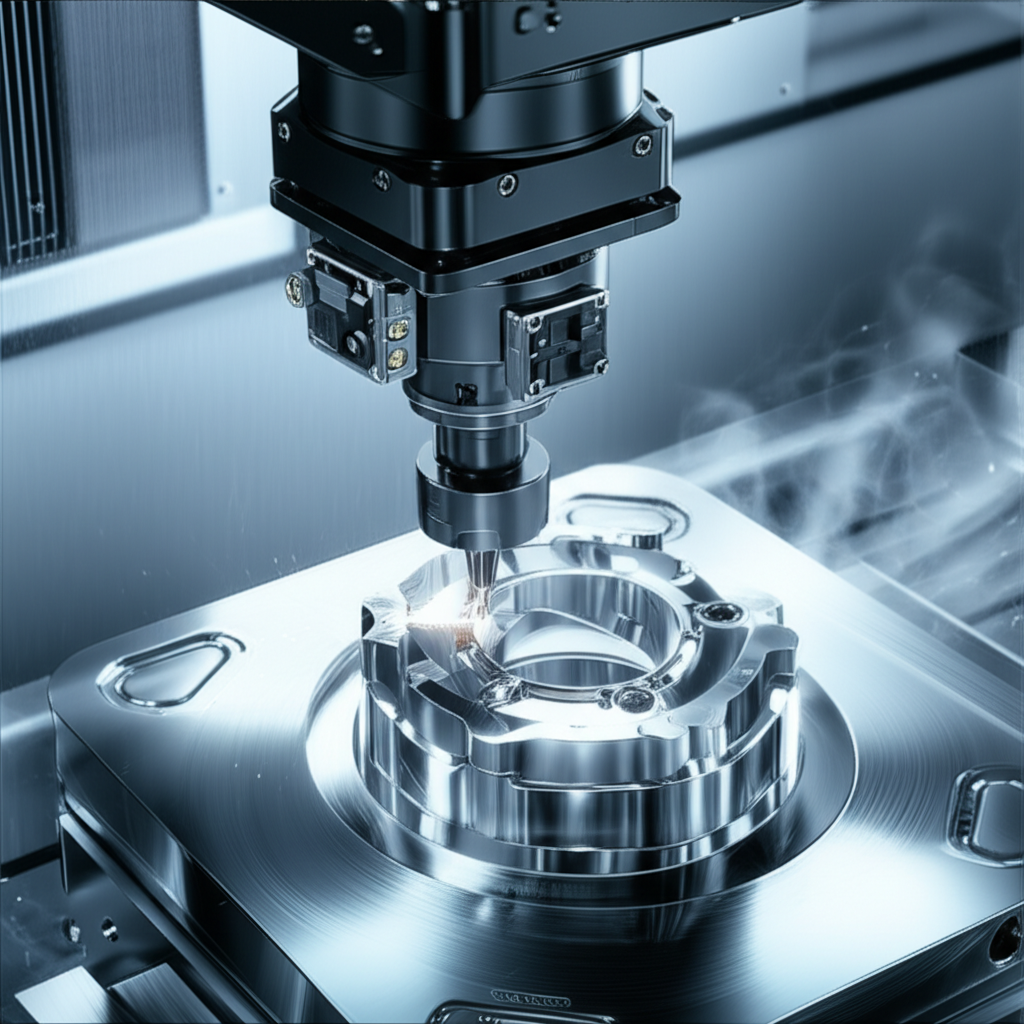
Navigating Machining Challenges: 304 vs. 316 Stainless Steel
A common decision point for engineers is choosing between 304 and 316 stainless steel. While similar, their subtle differences in composition lead to significant variations in performance, particularly regarding corrosion resistance and machinability. Making the right choice is critical to ensuring the longevity and cost-effectiveness of a project.
Grade 316 contains molybdenum, an addition that dramatically enhances its resistance to chlorides and other industrial chemicals. This makes it the superior choice for marine, chemical processing, and pharmaceutical applications. However, this added resilience comes at a cost—both in price and in ease of manufacturing. Understanding these trade-offs is key to proper material selection.
| Property | 304 Stainless Steel | 316 Stainless Steel |
|---|---|---|
| Machinability | Good (Rated ~40%) | Fair (Rated ~36%) |
| Corrosion Resistance | Excellent in most environments | Superior, especially against chlorides and acids |
| Cost | Lower | Higher |
| Common Uses | Food equipment, architectural trim, general industrial | Marine hardware, chemical tanks, medical implants |
From a machining perspective, 304 stainless steel is generally easier to work with than 316. Its composition results in slightly lower work hardening rates and better chip formation, which can lead to longer tool life and faster production cycles. In contrast, the properties that make 316 more corrosion-resistant also make it tougher and more abrasive on cutting tools. Machining 316 effectively requires more rigid machine setups, optimized cutting speeds, and consistent application of high-quality coolant to manage heat and prevent tool wear. As such, while 316 offers superior performance in harsh environments, 304 is often the more practical and economical choice for a vast range of CNC turning applications.
Frequently Asked Questions
1. What are the disadvantages of 304 stainless steel?
The primary disadvantage of 304 stainless steel is its poor resistance to environments containing chlorides, such as saltwater or de-icing salts. In these conditions, it is susceptible to pitting and crevice corrosion. It is therefore not recommended for marine applications or situations involving direct, prolonged contact with strong chemicals, where a grade like 316 stainless steel would be more suitable.
2. Is 304 or 316 harder to machine?
Grade 316 stainless steel is generally considered more difficult to machine than 304. The addition of molybdenum in 316 increases its toughness and corrosion resistance but also makes it more abrasive on cutting tools and more prone to work hardening. Consequently, 304 stainless steel offers better machinability, often resulting in faster cycle times, longer tool life, and potentially lower manufacturing costs for components not exposed to harsh corrosive elements. Data from manufacturers like TiRapid often reflects this difference in workability.
-
Posted in
cnc machining, CNC turning services, custom parts manufacturing, precision engineering, stainless steel 304

